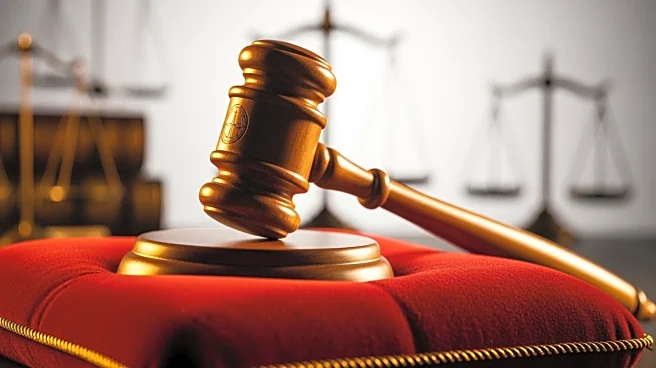What's Happening?
Israeli Prime Minister Benjamin Netanyahu is currently defending himself in the Case 1000 trial, where he faces allegations of receiving luxury gifts from wealthy benefactors. Netanyahu has argued that
these gifts, which include cigars and champagne, were given out of personal friendship rather than as bribes. During the trial at the District Court in Tel Aviv, Netanyahu responded to the prosecution's questions by downplaying the quantity of gifts received, stating, 'You are trying to present this as if I received a truckload of cigars. I received a trickle - it’s nothing.' The trial is part of a broader legal challenge facing Netanyahu, who has been embroiled in multiple corruption cases over the years.
Why It's Important?
The trial of Benjamin Netanyahu is significant as it highlights ongoing concerns about corruption within Israeli politics. Netanyahu's defense against the allegations could impact his political career and influence public perception of his leadership. The case also underscores the challenges faced by Israeli leaders in maintaining transparency and accountability. If Netanyahu is found guilty, it could lead to political instability and affect Israel's governance. The trial is closely watched by both domestic and international observers, as it may set precedents for how corruption cases are handled in Israel.
What's Next?
The trial is expected to continue with further testimonies and cross-examinations. Netanyahu's legal team will likely continue to argue that the gifts were not intended as bribes, while the prosecution will aim to prove otherwise. The outcome of the trial could have significant implications for Netanyahu's political future and the broader political landscape in Israel. Observers are keenly watching for any shifts in public opinion or political alliances as the trial progresses.
Beyond the Headlines
Beyond the immediate legal implications, the trial raises questions about the ethical standards expected of public officials in Israel. It also highlights the cultural dimensions of gift-giving and personal relationships in politics. The case may prompt discussions on the need for stricter regulations and oversight to prevent corruption and ensure integrity in public office.








